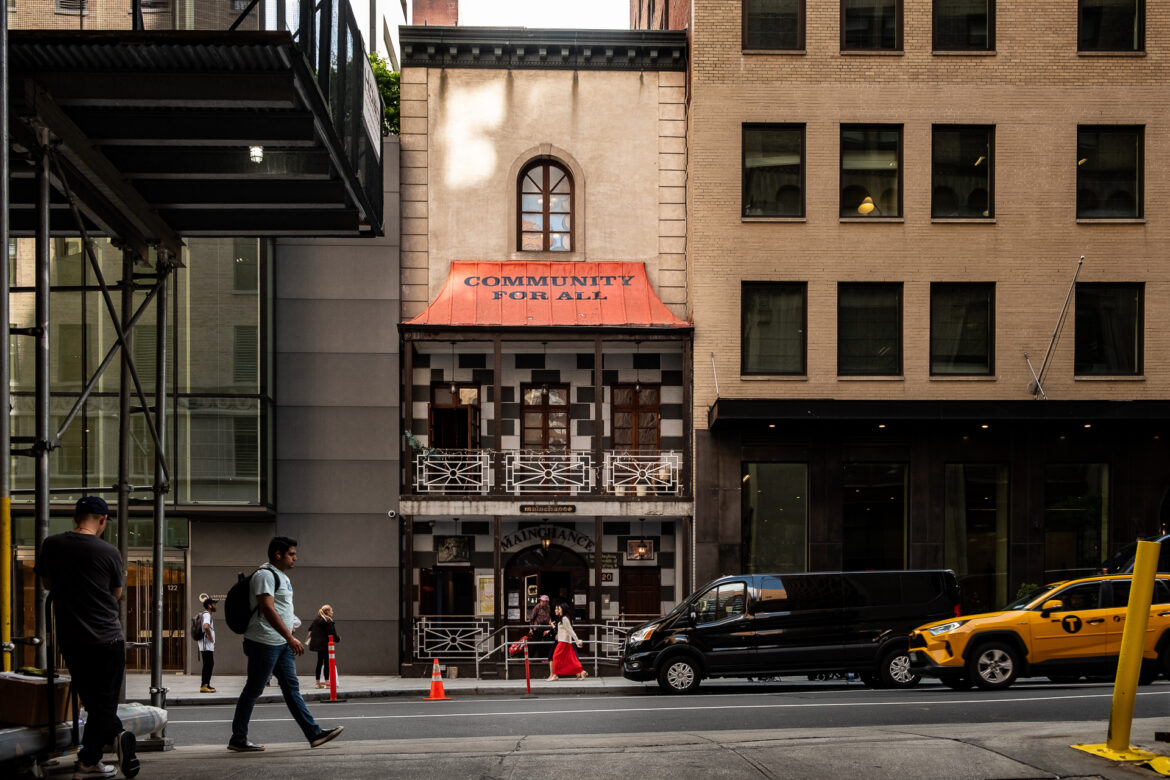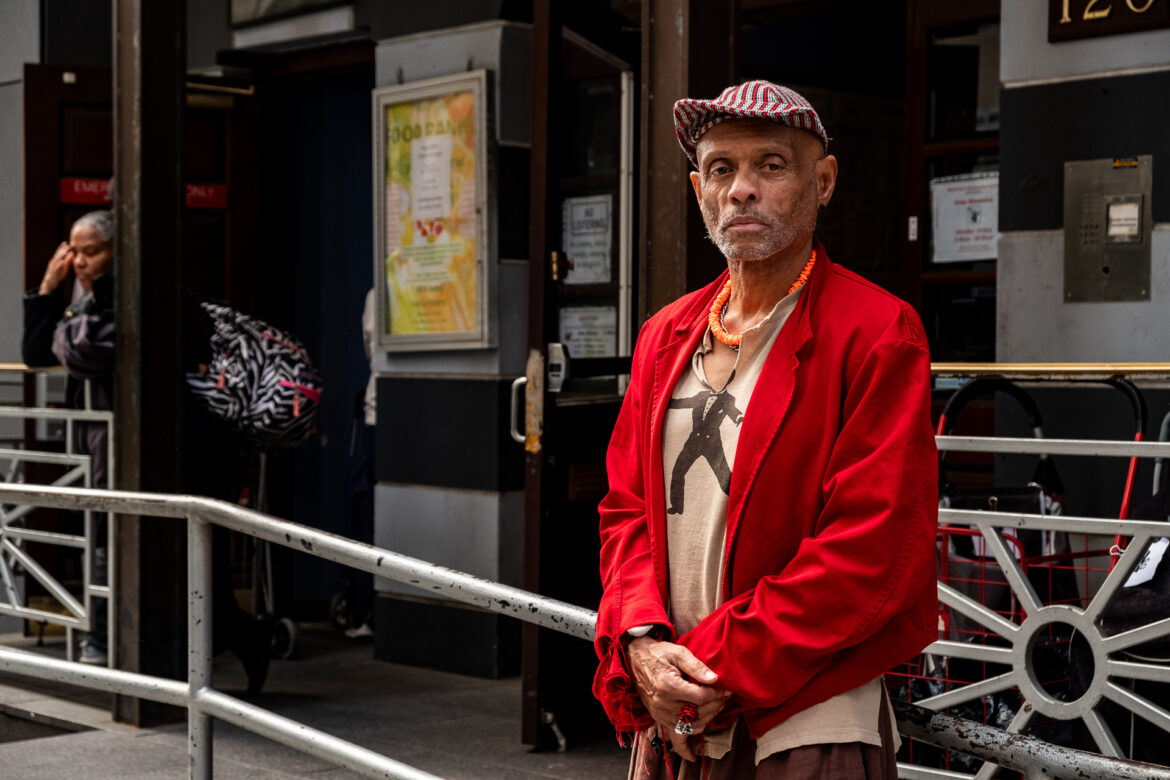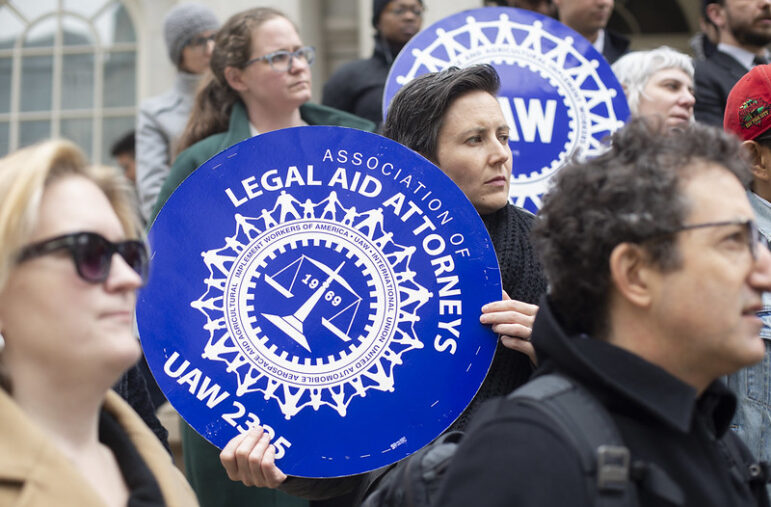A state judge ruled that the city terminated the homeless drop-in center’s contract without rational basis, ensuring the Midtown East center can continue to operate until 2026.

Adi Talwar
The Mainchance Drop-in Center, located on East 32nd Street between Park and Lexington avenues in Manhattan, has been there for the last 20 years.The city must maintain its contract with Mainchance, a homeless drop-in center in Midtown East, a New York State Judge ruled Monday. The city planned to terminate Mainchance’s contract on June 30 of this year until a lawsuit delayed the center’s closing while the court considered whether the city ended the contract arbitrarily.
In a decision filed last week, Judge Lynn Kotler wrote that the Department of Homeless Services (DHS) abused its discretion in terminating Mainchance’s contract without cause. The ruling means that the city must continue to fund Mainchance through its current contract, which ends at the end of June 2026.
“While DHS did reserve to itself the right to terminate the Contract, this does not give it the right to do so in an arbitrary and capricious manner,” wrote Kotler.
Spokespeople for the Department of Social Services, which encompasses DHS, disagreed with the decision, as did the New York City Law Department. Officials argue that the ruling interferes with DHS’s ability to manage its resources, pointing to the recent expansion of shelter available to street homeless New Yorkers at other sites.
“DHS makes a host of complex policy decisions about how to best service its clients, including through the use of its contract portfolio. We obviously disagree with this ruling which we believe is contrary to well established legal precedent on contract terminations,” said Nicolas Paolucci, director of public affairs for the New York City Law Department, in a statement to City Limits.
Brady Crain, the center’s executive director, expressed relief and excitement in a phone interview last week. “Elated, relieved, happy,” said Crain, describing his response to the news. “I haven’t been sleeping good in months, worried about this.”
With the victory in court, Mainchance will no longer have to close, according to Crain. Mainchance gets 95 percent of its funding from the city contract and has been operating 24 hours a day, seven days a week, for over 20 years on East 32nd Street in Manhattan. It provides homeless New Yorkers with three meals a day, housing counseling, and healthcare services.
In their response to the June lawsuit seeking to halt the site’s closure, lawyers for the city argued that they had an “absolute right” to terminate the contract. Previously, DHS suggested several contributing reasons for the closure, including budget constraints, performance issues, and a preference for so-called “Safe Haven” shelters, which have beds, over drop-in centers like Mainchance, which do not.
Judge Kotler was “unpersuaded,” pointing out that lawyers for the city failed to explain why Mainchance, the only drop-in on Manhattan’s East Side, was the only center which DHS sought to close. Had it closed, its clients would have been redirected to other facilities across the city, or eventually sent to a planned drop-in center at 7th Avenue and 59th Street, which is not yet open.
A spokesperson for DSS emphasized that DHS is building on the existing network of low barrier shelters—an approach they say is working. There is already another drop-in center and a Safe Haven facility located in the same Council district as Mainchance, DSS says, along with three additional Safe Haven and stabilization bed sites nearby. Between July 2023 and June 2024, more than 1,000 New Yorkers were placed in subsidized permanent housing from the city’s network of low-barrier shelters, more than double the amount from the same period in 2021-2022, according to DSS.
Mainchance received good scores on its evaluations from DHS in the years leading up to the termination decision, and recently won a different DHS contract to operate temporary shelter for migrants at a Queens hotel.
Mainchance and its operator Grand Central Neighborhood Social Services Corporation previously pitched DHS on converting the facility to a Safe Haven. “That discussion was never had,” said Crain. “It was just a bullet.” The same day they sent in blueprints for a proposed renovation in May, DHS sent a letter terminating the contract without cause.
“DHS has no plan in place to replace Mainchance with an alternative shelter, essentially reducing the aid provided to persons suffering housing insecurity based upon the preference for safe havens over drop-in centers,” wrote Kotler.
Lawyers for DHS, in their answer to the lawsuit, argued that blocking the contract termination would be “usurping the role of DHS to deal with complex issues of providing adequate shelter to its clients experiencing homelessness.”
According to DHS, the loss of Mainchance would have been offset by a broader expansion in shelter resources under Mayor Eric Adams’ administration, including low-barrier shelters like drop-ins and Safe Havens.
“Over the past couple of years, we have opened two new [drop-in centers],” said Neha Sharma, a spokesperson for DSS, in a statement to City Limits. “We have also brought more than 1,200 Safe Haven and stabilization beds online during this administration, with hundreds more beds coming online by the end of this year which will bring the total number of Safe Haven and stabilization beds citywide to nearly 4,500.”

Adi Talwar
Mainchance Director Brady Crain outside the Midtown East building.
Mainchance is a small agency, operating just two facilities, unlike larger homeless service providers that may operate multiple shelters and have street outreach teams.
“It’s a David and Goliath story to tell the truth,” said Crain.
Unless something changes, Mainchance will see out its current contract through June 2026. A spokesperson for the New York Law Department said they are evaluating next steps.
“What this administration is up to and why they would have tried to take down a homeless shelter in the middle of the homeless crisis is just to me appalling,” said Marc Gross, a Mainchance board member and attorney who is representing the center pro-bono.* “We’re hoping that by [2026] we have a different administration and that they’ll see the wisdom of keeping Mainchance going.”
*An earlier version of this story left out Gross’ full name and affiliation. City Limits regrets the error.
To reach the editor, contact Jeanmarie@citylimits.org
Want to republish this story? Find City Limits’ reprint policy here.








